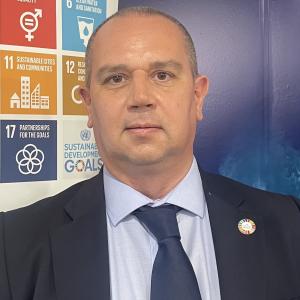Jamaica has opportunity to champion blue economic transformation
03 August 2022
Jamaican Economy Panel publishes 13th discussion on blue economy
Today, the Jamaican Economy Panel (JEP) publishes its thirteenth round of discussions. In this discussion, the JEP was asked questions on the Ocean economy in Jamaica and asked to share their perspectives on the central issues as well as what should be done to combat Ocean pollution.
Almost three-quarters of the earth's surface is covered by Oceans, yet the world is far from capturing the benefits it can offer for sustainable development. Under constant challenge from major threats like climate change, human mistreatment, and inappropriate waste management, all of which have been detrimental to the health of the oceans and to those who depend on its resources.
When the panellists were asked what they thought were the most significant issues facing our Ocean today, in the context of Jamaica, they felt that overfishing, marine litter/plastic and the dying coral reefs featured most prominently. Despite action to control plastic use, such as banning plastic carrier bags and straws, further actions are required if we are to sustainably manage this valuable resource.
To tackle these issues and reverse some of the damage done to the Ocean, the panellists felt that a suite of actions was needed which included developing more opportunities for recycling, strengthening regulations on waste management and raising awareness of the adverse consequences of the current business-as-usual action is having on our Ocean resources. The Recycling Partners of Jamaica have provided opportunities for Jamaicans to recycle plastic bottles by forming a collaboration with the National Environment Planning Agency (NEPA) and Magna Rewards Jamaica Ltd.
Dr Christine Clarke, Senior Lecturer in the Department of Economics at UWI Mona, highlighted the need for waste management to go further with a "5 to 10-year campaign promoting separation at source, containerisation and at least weekly collection of garbage."
Our panellists felt that effective awareness raising is critical to tackling Ocean pollution. Dr Patrice Whitley, Lecturer in the Department of Economics at UWI Mona, highlighted that "In order for change to occur, the general population needs to be aware of and concerned about the problem."
Tailored education on Ocean sustainability provides a powerful channel through which we can change behaviours and attitudes toward the environment, specifically those related to our Oceans. Mobilising the youth of today and encouraging children to be involved in sustainable environmental practices and blue activities will ensure we create a more sustainable future.
When the panellists were asked about who should be targeted to help combat ocean pollution, Chris Corbin, Acting Coordinator, UNEP Cartagena Convention Secretariat, explained, "We need to consider multiple sectors who contribute to pollution, who are impacted by pollution, who regulate pollution and who can advocate for change and effect change."
Setting behaviours, attitudes, regulations and policies to strike the right balance between conserving our ocean resources for future generations and capturing its economic potential to enhance incomes and livelihoods are essential to Jamaica’s successful sustainable development.
Dr Nadine McCloud highlighted the prospects that the Ocean economy offers for job creation and shares.
"The scope for the ocean economy to create employment and innovation booms and consequently foster economic growth for Jamaica is massive. However, monetizing this critical natural resource must be done sustainably,” Dr Nadine McCloud said.
The JEP acknowledged the multi-sectorial attempts to address many of the foremost issues facing the Ocean. Dr Garry Conille, United Nations Resident Coordinator, highlighted however that an ambitious balance must be struck.
“We have some way to go if we are to achieve blue economic transformation for Jamaica, especially one that strikes the right balance between optimising its commercial value and preserving this most valuable resource for future generations. This is the joint responsibility of everyone, and we must all play our part,” Dr Conille said,
As it builds forward better from the COVID-19 pandemic, Jamaica is presented with an important opportunity to chart a new course in this decade of action and champion blue economic transformation that is globally replicable.
For more information on the Jamaican Economy Panel and for the results of this JEP discussion visit here.

Ciara Patterson

Dr. Nadine McCloud





